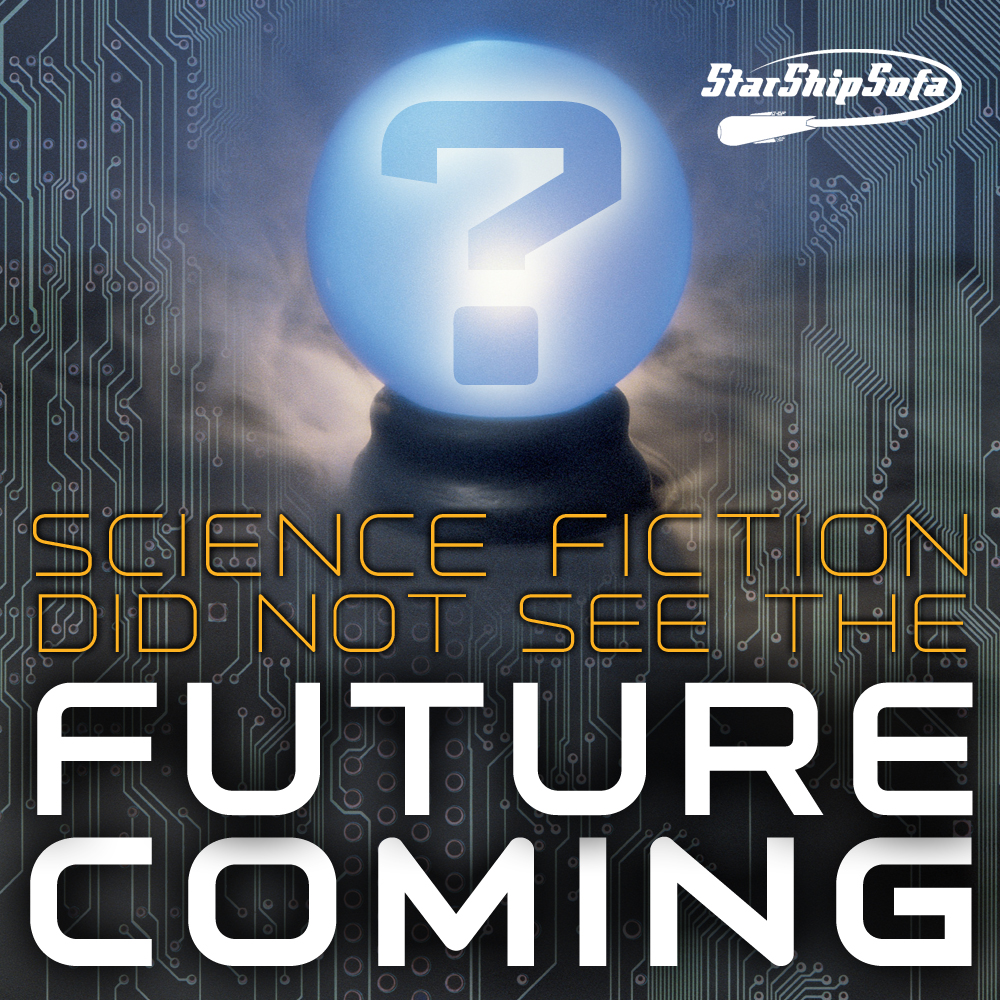I had the great privilege a to interview renowned Analog editor Stanley Schmidt for a up coming show for StarShipSofa. One question I asked him really made me think well after the interview was finished. Below is a typed version of that soon to be aired interview.
Me: Has the technology went in a different direction from what you were expecting? In the 60’s and 70’s it was all the space race but we seem now to have went into smart phones and wearable computers. Did you expect it to go this direction?
Stan: I think that is a very important point that one of the biggest surprises in the development of technology and a case where science fiction almost completely missed the boat. The whole business of computers and how ubiquitous they have become. Everybody predicted computers but nobody predicted they were going to in every aspect of life for individuals as they do now. You can find a few early evidences of it but we are living in a very science fictional world now, and its a science fictional world that science fiction largely did not anticipate.
I find it fascinating that as Stan says… on a whole science fiction failed to see where the future was going. I have always thought it was the other way round, that science fiction predicted where we as a whole followed. And sure, like Stan says, there was a few early adopters but for the majority… we seem to have missed this change in direction. I would like to find out why?




 Subscribe Via iTunes
Subscribe Via iTunes Subscribe to RSS feed
Subscribe to RSS feed Like us on Facebook
Like us on Facebook Follow us on Twitter
Follow us on Twitter
I think we got the time line wrong, that’s all. Writers of the 50’s 60’s and 70’s were perhaps too optimistic about where we would be by this time, the present, 2013. And the stepping stones often get glossed over in history books, why not in future histories? I would put forward the idea that where we are now is a necessary step towards the space-faring future that was predicted.
I think that if you accept the contention, it may bedue at least in (large) part to the fact that the digital developments came at SF from a blind spot: SF was (and is) all about “doing”. Our society has largely taken these devices and created ones that “enable” and remove the “doing” at least one step. Plug numbers into a box and have a machine calculate the formula? No, no no – grab your slipstick and figure it yourself (after all, if you don’t know ‘how’ to do, you can’t ‘do’, can you?)
What author – or dreamer – ever believed or got excited by “punching the destination into the dashboard and sitting back for the ride” to the Moon or Mars or Arcturus? Of course YOU piloted the spaceship. About the only time we see robot-controlled ships is when the trip is long and boring and everyone is going to sleep through the experience. Even then it still takes a human sitting at analog controls to start and end the journey.
SF was very much hands-on because the competent characters KNEW their science and tech and could directly manipulate and interact with all of its aspects. The idea of shoving information into a black box and letting IT “do” …well, Scanners Live In Vain by Cordwainer Smith is a perfect illustration: humans have to be modified, cut off from their humanity, in order to be able to handle the pain of the “up and out” of deep space. The Instrumentality (human interstellar gov) certainly has the technological means to create systems that would run their ships, but they never enter the picture. Humanity and human beings are at the center; if they want to achieve great things, THEY have to directly interact with it, manipulate it, wrestle it under at least temporary control. If they don’t, the surrender something of themselves, they lose something of themselves. (The Instrumentality recognizes that having machines and underpeople doing everything is killing humanity and conceives a plan that reintroduces strife and conflict, disease & etc. back into human culture – The Planet Buyer/Norstrilia).
What’s the inevitable conclusion of any speculation or extrapolation of digital technologies? The singularity. The Machine Stops. Where does that leave us? Humans out of the picture. Consciously or unconsciously I think they collectively shied away from that (this) future.
We also need to consider science fiction that referred to a space age in a world where 60 percent earn only around two dollars daily, lack one or more basic needs, and with the rest face the effects of economic crisis, peak oil, and global warming.